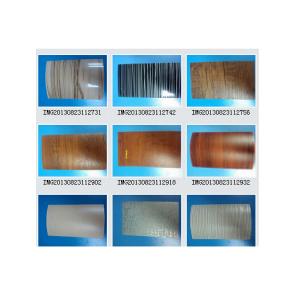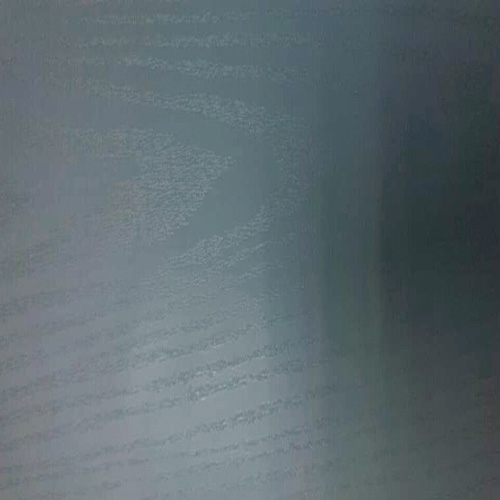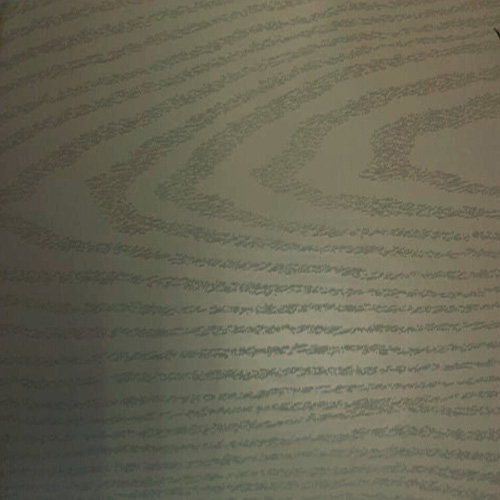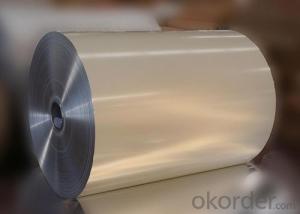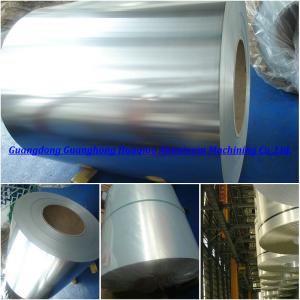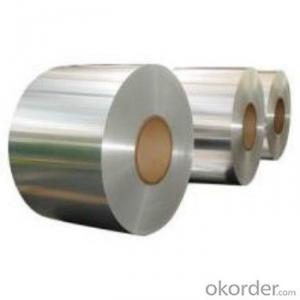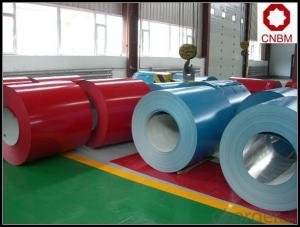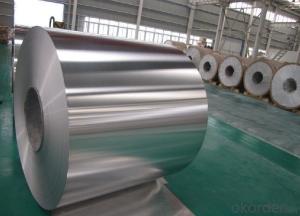Aluminum Steel Coil Plate Type Copper Tube Aluminium Fin Coil
- Loading Port:
- Shanghai
- Payment Terms:
- TT or LC
- Min Order Qty:
- 5 m.t.
- Supply Capability:
- 10000 m.t./month
OKorder Service Pledge
OKorder Financial Service
You Might Also Like
1.Structure of Aluminium Alloy Coil for Bus Stop Description:
We can produce aluminum sheet,color aluminum sheet and plastic composite panel base material. They are widely used in construction and decoration, hardware and electric appliances manufacture, automobile manufacture and other industrial and civil purposes, such as electronic capacitor, rice cooker, refrigerator, computer casting, lamp shade, air-conditioner, cosmetics cover and box, air-conditioner radiator, inner container of disinfecting cabinet, ceiling board, automobile motherboard, cover board and top board, etc.
2.Main Features of Aluminium Alloy Coil for Bus Stop :
Good Corrosion Resistance
Good Machinability
High Quality
Competitive Price
3. Aluminium Alloy Coil for Bus Stop Images:
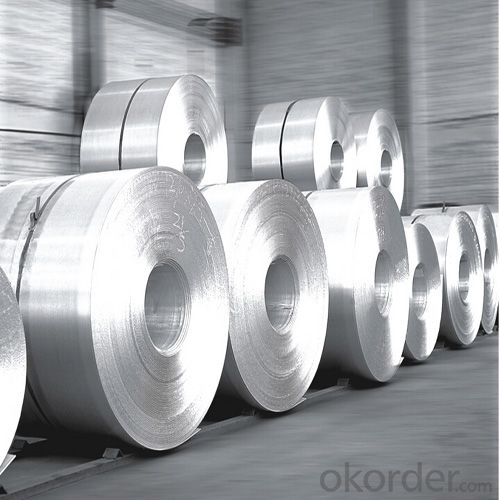
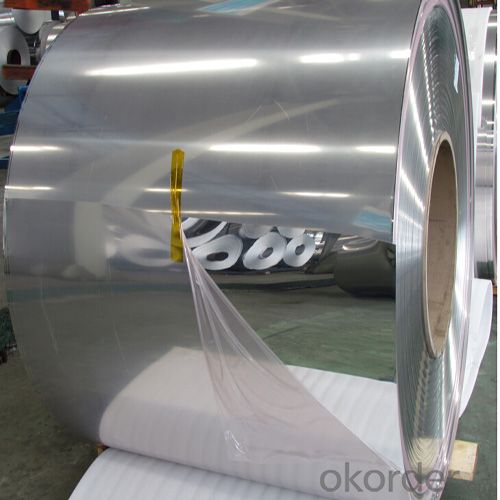
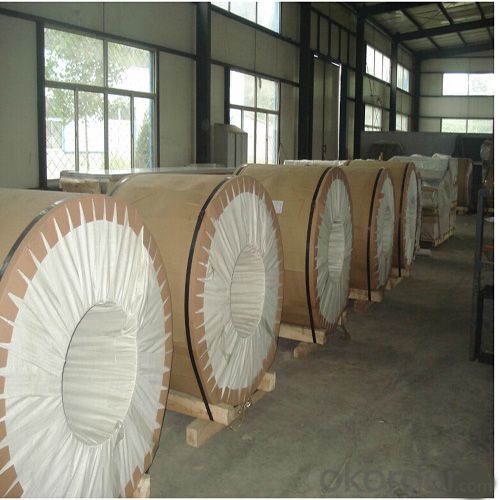
4. Aluminium Alloy Coil for Bus Stop Specification:
| Alloy No. | Thickness (mm) | Width (mm) | Length (mm) | Temper | |
| A1050,A1060, A1070,A1100 | 0.2-100 | 20-2200 | 20-8000 | O,H12,H22,H14,H16,H18, H24,H26,etc | |
| 3A21,A3003,A3105,A3004 | 0.2-100 | 20-2200 | 20-8000 | O,H14,H18,H24,etc | |
| A5052 ,A5005,A5083,A5754 | 0.2-100 | 20-2200 | 20-8000 | O,H18,H24,H32,H34,H111,H112 ,etc | |
| A6061,A6082,A6063 | 0.2-200 | 20-2200 | 20-8000 | T4,T6, T651,etc | |
| A8011 | 0.2-100 | 20-2200 | 20-8000 | O,H12,H22,H14,H16,H18,H24,H26, etc | |
5.FAQ
Q1.How long have you been in this product?
A1:More than 10 years.
Q2. What's the minium quantity(MOQ)?
A2. 5 Metric tons
Q3. How long is shipping time?
A3. 7 (ready-made products)-25 days(OEM)
Q4. How do you guarantee the quality?
A4. 1. Cooperating and Exchaning experience with sevral quoted aluminum companies
2. Japanese and Swiss production line and skilled works (regular training and testing)
3. more than 10 years production experience.
Q5. Do you have after sale service?
A5. Yes. Any quality problem occurs within one year, pls take photoes,we will be responsible.
- Q: How are aluminum coils processed to achieve desired mechanical properties?
- Aluminum coils are processed using various techniques to achieve the desired mechanical properties. One commonly used method is called annealing. Annealing is a heat treatment process in which the coils are heated to a specific temperature and then cooled slowly. This process helps to reduce internal stresses and improve the metal's ductility and toughness. Another important process is cold rolling. Cold rolling involves passing the coils through a series of rollers at room temperature to reduce their thickness and improve their mechanical properties. This process not only increases the strength of the aluminum but also enhances its surface finish. To further enhance the mechanical properties, aluminum coils can also undergo alloying. Alloying involves mixing the aluminum with other elements like copper, manganese, or magnesium to form specific alloys. These alloys offer improved strength, corrosion resistance, and other desirable properties. Additionally, aluminum coils can be subjected to heat treatments like precipitation hardening. This process involves heating the coils to a specific temperature and holding them there for a certain period, followed by rapid cooling. Precipitation hardening allows the metal's microstructure to form fine particles, which increase its strength and hardness. Lastly, surface treatments such as anodizing or painting can also be applied to aluminum coils to enhance their mechanical properties. Anodizing forms a protective oxide layer on the surface, improving corrosion resistance, while painting provides additional protection and aesthetic appeal. In summary, aluminum coils are processed through techniques such as annealing, cold rolling, alloying, heat treatments, and surface treatments to achieve the desired mechanical properties. These processes can enhance the strength, ductility, toughness, and corrosion resistance of the aluminum, making it suitable for a wide range of applications.
- Q: How are aluminum coils protected from damage during transportation?
- Aluminum coils are protected from damage during transportation through various measures such as using protective packaging materials like plastic or wooden crates, securing them with straps or bands to prevent movement, and using padding or cushioning materials to absorb shocks and vibrations. Additionally, coils may be wrapped in protective films or coated with anti-corrosion agents to safeguard them from environmental elements during transit.
- Q: What are the advantages of using aluminum coils in HVAC systems?
- Using aluminum coils in HVAC systems offers several advantages. Firstly, aluminum coils are significantly lighter than traditional copper coils, which makes them easier to handle and install. This not only reduces labor and transportation costs but also puts less stress on the HVAC system, resulting in less wear and tear over time. Another benefit of aluminum coils is their superior resistance to corrosion. Aluminum naturally resists rust and oxidation, prolonging the lifespan of the coils and enhancing the overall durability of the HVAC system. This resistance to corrosion also helps maintain system efficiency by keeping the coils clean and free from debris buildup. Additionally, aluminum coils have excellent heat transfer properties. They efficiently absorb and release heat, allowing the HVAC system to cool or heat the air more effectively. This improved heat transfer efficiency can lead to energy savings and reduced operating costs, as less energy is required to achieve the desired temperature. Furthermore, aluminum coils are more environmentally friendly than copper coils. Aluminum is highly recyclable, contributing to waste reduction and resource conservation. The manufacturing process for aluminum coils also requires less energy and produces fewer greenhouse gas emissions, making it a sustainable choice for HVAC systems. In conclusion, the benefits of using aluminum coils in HVAC systems include lighter weight, corrosion resistance, superior heat transfer properties, energy efficiency, and environmental sustainability. These advantages make aluminum coils the preferred choice for many HVAC professionals and homeowners.
- Q: How do aluminum coils perform under high-temperature applications?
- Aluminum coils are renowned for their exceptional resistance to heat and their ability to perform well in applications that involve high temperatures. With a melting point of approximately 660 degrees Celsius (1220 degrees Fahrenheit), aluminum coils can endure and function efficiently even when exposed to elevated temperatures. The high thermal conductivity of aluminum allows for the rapid transfer of heat away from the coil, preventing overheating and potential damage. This characteristic enables aluminum coils to effectively dissipate heat, resulting in improved thermal management and enhanced performance in environments with high temperatures. In addition, aluminum coils possess good corrosion resistance, which is crucial in situations where heat and moisture are present. The naturally occurring oxide layer on the surface of aluminum acts as a protective barrier against corrosion, ensuring the durability and reliability of the coil, even in challenging conditions. Furthermore, aluminum coils are lightweight and highly malleable, making them easy to install and integrate into a variety of systems and applications. This versatility renders them suitable for a wide range of high-temperature applications, including heat exchangers, automotive components, HVAC systems, and electrical devices. However, it is important to note that subjecting aluminum to extreme temperatures beyond its melting point can cause the material to weaken or deform. Therefore, it is essential to carefully consider the specific temperature requirements and limitations of the aluminum coil before implementing it in a high-temperature application.
- Q: Can aluminum coils be used for window frames?
- Yes, aluminum coils can be used for window frames. Aluminum is a popular choice for window frames due to its lightweight, durable, and corrosion-resistant properties. It is also easily customizable and can be painted or anodized to achieve different aesthetics.
- Q: How are aluminum coils used in the production of window frames?
- Aluminum coils are commonly used in the production of window frames due to their numerous advantages. These coils are typically made of high-quality aluminum alloy, which provides strength, durability, and resistance against corrosion. To begin the production of window frames, aluminum coils are first unrolled and cut into the desired lengths. These coils are available in various thicknesses, allowing manufacturers to produce window frames of different sizes and specifications. The aluminum coils are then shaped into the required profiles using specialized machines. These profiles can be extruded, bent, or rolled into different shapes, such as rectangular or curved, depending on the design of the window frame. This flexibility in shaping allows for the creation of custom window frames to meet specific architectural requirements. Once the profiles are formed, they are joined together using different techniques like welding or mechanical fasteners. The lightweight nature of aluminum makes it easy to handle during the assembly process, reducing overall production time and costs. Additionally, aluminum coils can be treated with various surface finishes, such as anodizing or powder coating, to enhance their aesthetics and provide further protection against weathering and wear. These finishes also offer a wide range of color options, allowing window frame manufacturers to match the frames with the overall design of the building or the homeowner's preferences. Using aluminum coils in window frame production offers several advantages. Aluminum is a highly sustainable material as it can be recycled repeatedly without losing its properties. It is also lightweight, making the installation process easier and reducing the load on the structure. Moreover, aluminum is a good thermal conductor, which helps in improving energy efficiency by minimizing heat transfer. In conclusion, aluminum coils play a crucial role in the production of window frames. Their strength, durability, flexibility, and aesthetic options make them a preferred choice for manufacturers. Whether it is for residential or commercial applications, aluminum coils provide high-quality window frames that meet industry standards and enhance the overall appearance and performance of buildings.
- Q: Explain how the temperature affects aluminum coil properties and behavior.
- <p>The relationship between aluminum coil and temperature is significant as temperature influences the coil's physical properties and performance. At lower temperatures, aluminum coils become more brittle and susceptible to cracking or breaking. As the temperature increases, aluminum's ductility improves, allowing it to be more easily shaped and formed. However, excessive heat can also lead to deformation and loss of strength. The thermal conductivity of aluminum is high, meaning it conducts heat well, which is useful in applications requiring heat transfer. Additionally, the electrical conductivity of aluminum is affected by temperature; as temperature rises, resistance increases, which can impact applications where electrical conductivity is critical.</p>
- Q: ... of aluminum atoms?(mole = 6.022x10^23)
- WHEN IM OUT ON THE SEA WITH ME CREW I LIKE TO THINK THAT PERHAPSY WE CAN LOOT A BARGE FULL 'O THAT WONDROUS MATERIAL YE CALL ALUMINUM AS FER MOLES, THEY CAN BE QUITE THE PESTS AROUND YER GARDEN AND WHAT-NOT
- Q: I need to make aluminum powder that is fine! I don't have a mill to use or something like that. If I fill literally the whole coffee blender, will that get it fine? I want to make an ok amount of it. I tried to use sand paper which makes it as fine as I want it but takes a while of sanding.
- How To Make Aluminum Powder
- Q: What are the different coil winding methods for aluminum coils?
- There are several different coil winding methods for aluminum coils, each with its own advantages and suitability for specific applications. 1. Layer winding: This method involves winding the aluminum wire in a single layer around the coil mandrel. It is commonly used in low voltage applications and provides good thermal conductivity and heat dissipation. 2. Random winding: In this method, the aluminum wire is wound randomly around the coil mandrel, without any specific pattern. It is often used in high voltage applications, as it helps to reduce the risk of corona discharge and provides better insulation. 3. Concentric winding: As the name suggests, concentric winding involves winding the aluminum wire in concentric circles around the coil mandrel. This method is suitable for applications where space is limited, as it allows for a higher number of turns in a compact coil. 4. Interleaved winding: Interleaved winding involves winding multiple layers of aluminum wire in an interleaved pattern. This method helps to reduce the overall size of the coil while maintaining a high number of turns and increasing the inductance. 5. Helical winding: In helical winding, the aluminum wire is wound in a helix pattern, either at a constant pitch or with varying pitch. This method is often used in applications where a high inductance is required, such as inductors and transformers. 6. Sectional winding: Sectional winding involves dividing the coil into multiple sections and winding each section separately. This method is commonly used in large-scale applications, as it allows for easier handling and installation of the coil. Each of these coil winding methods has its own strengths and considerations, and the choice of method depends on factors such as the specific application requirements, space limitations, and desired electrical characteristics.
Send your message to us
Aluminum Steel Coil Plate Type Copper Tube Aluminium Fin Coil
- Loading Port:
- Shanghai
- Payment Terms:
- TT or LC
- Min Order Qty:
- 5 m.t.
- Supply Capability:
- 10000 m.t./month
OKorder Service Pledge
OKorder Financial Service
Similar products
Hot products
Hot Searches
Related keywords
